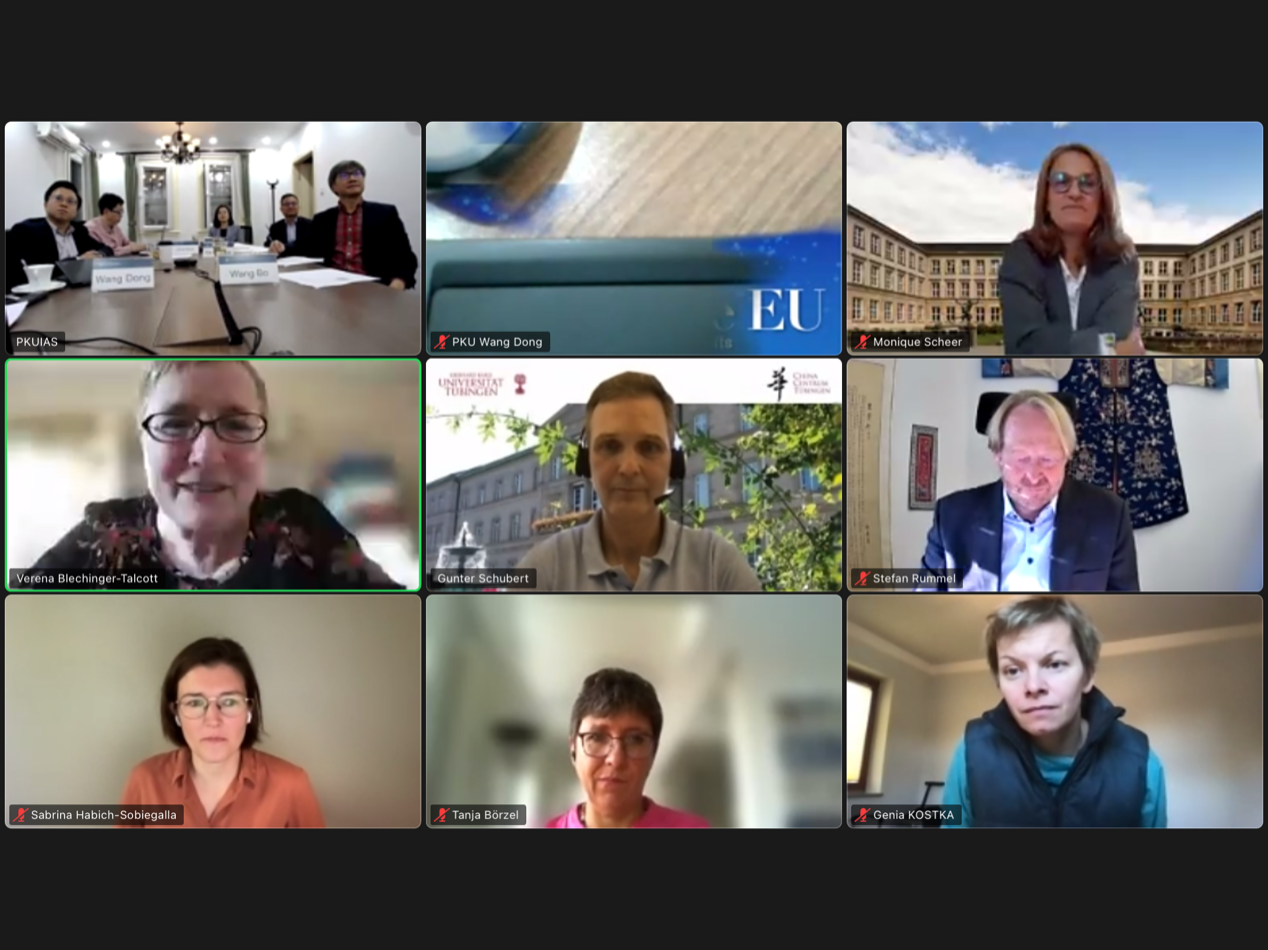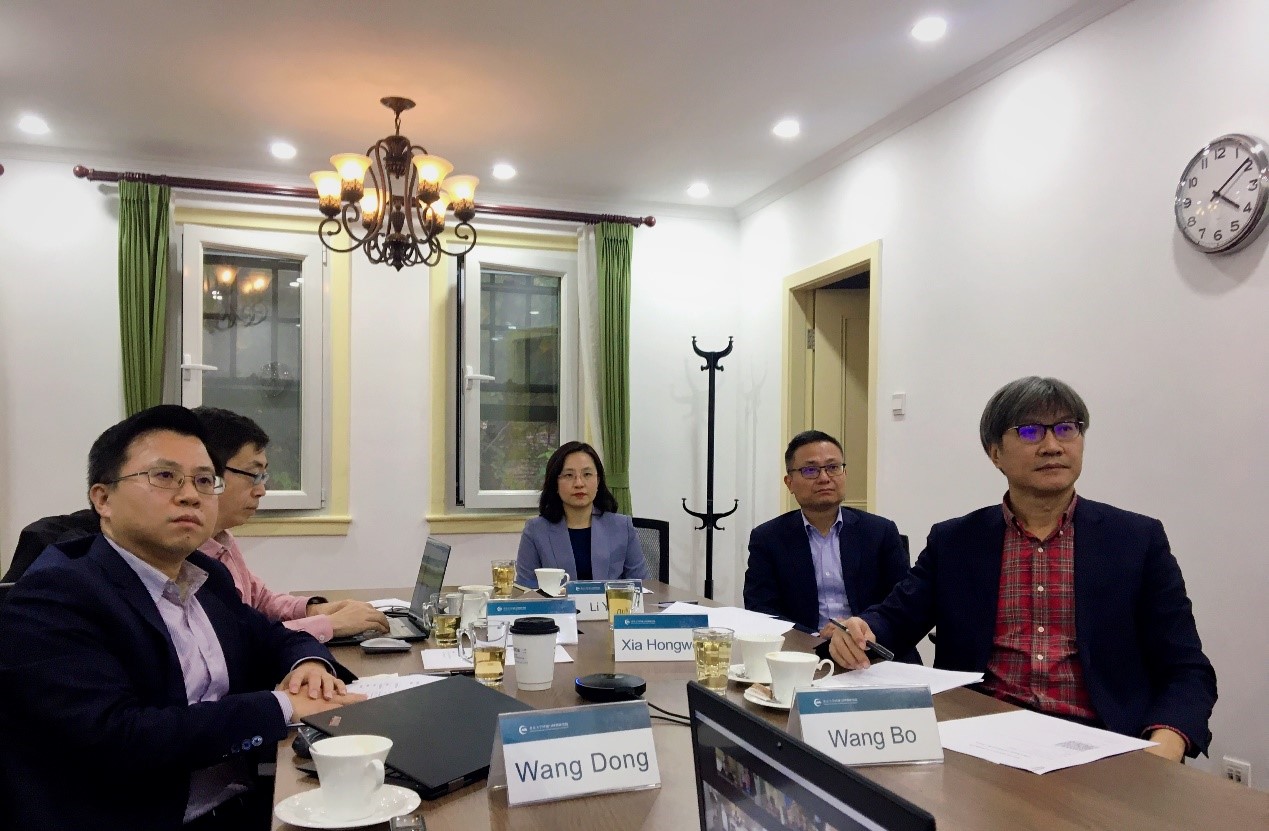The first session of the academic online series co-launched by Peking University (PKU), Freie Universität Berlin (FUB) and the University of Tübingen (UT) on the theme of “China & the EU in global power shifts” kicked off on October 29. PKU Vice President Wang Bo; Director of the Office of International Relations Xia Hongwei; Deputy Director of the Office of International Relations Li Yun; Deputy Director of the Institute of Area Studies, Peking University (PKUIAS) Zhai Kun; Professor of International Relations and Deputy Director of PKU’s Office for Humanities and Social Sciences Wang Dong; and Professor of Political Science and Director of the Cluster of Excellence “Contestations of the Liberal Script” of FUB Tanja Börzel, among others, were invited to the meeting.

The online session was moderated by Gunter Schubert, professor of Greater China Studies, Institute of Asian and Oriental Studies of UT. Monique Scheer, vice president of UT, Verena Blechinger-Talcott, vice president of FUB, and Wang Bo, gave opening remarks.

Wang Bo reviewed PKU’s history of signing an MoU on cooperation with FUB in 1981 and UT in 1987, stressing that Germany is one of the most important foreign countries for PKU to conduct foreign exchanges. With the development of globalization, different countries have kept even closer ties between each other. Inter-university cooperation and communication benefit the mutual understanding between countries. He pointed out that over the past 100 years, PKU has always possessed a research foundation for studies on world powers and surrounding regions, and PKUIAS conducts interdisciplinary research on this basis. Since it was founded three years ago, the institute has achieved fruitful results in terms of academic research, think tank work, talent cultivation and academic exchanges.
Prof. Tanja Börzel and Prof. Wang Dong respectively made keynote speeches. Prof. Tanja Börzel pointed out that as China’s strength increases, European society has widespread concerns about China’s challenge to the existing liberal script. She discussed China’s diplomatic practice that adheres to the principle of multilateralism on the international stage from the three aspects of economy, politics and international order, and responded to the concerns of European society.
Prof. Wang Dong reviewed the development of China–EU economic and trade relations in recent years. He emphasized that China–EU relations are generally healthy and stable. Against the backdrop of COVID-19 raging throughout the world, China and the EU should join hands. “Decoupling” is unrealistic, and “recoupling” is the future of the development of the relationship between the two sides. At a time when the trilateral relationship between China, the US and Europe is facing uncertainty, how to develop bilateral relations steadily has become an urgent problem that Chinese and European scholars need to solve. It is expected that China and Europe can always grasp the general direction of mutual support, solidarity and cooperation, and further promote a sound foundation and broad space for pragmatic cooperation.
At the end of the meeting, Prof. Tanja Börzel and Prof. Wang Dong answered questions from the audience members. As to the question of “How to understand EU’s identifying of China as a systemic rival,” Prof. Tanja Börzel interpreted it from the difference between a competitor and a rival. Prof. Wang Dong pointed out that the “over-securitization of the trade relationship” is not only the reason for the deterioration of Sino-US economic and trade relations, but also a trap that should be avoided in the future development and construction of Sino-European relations.


